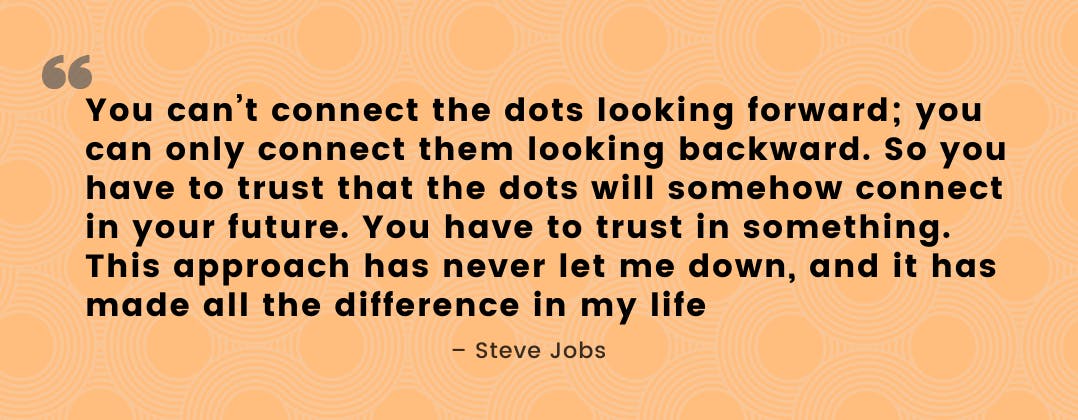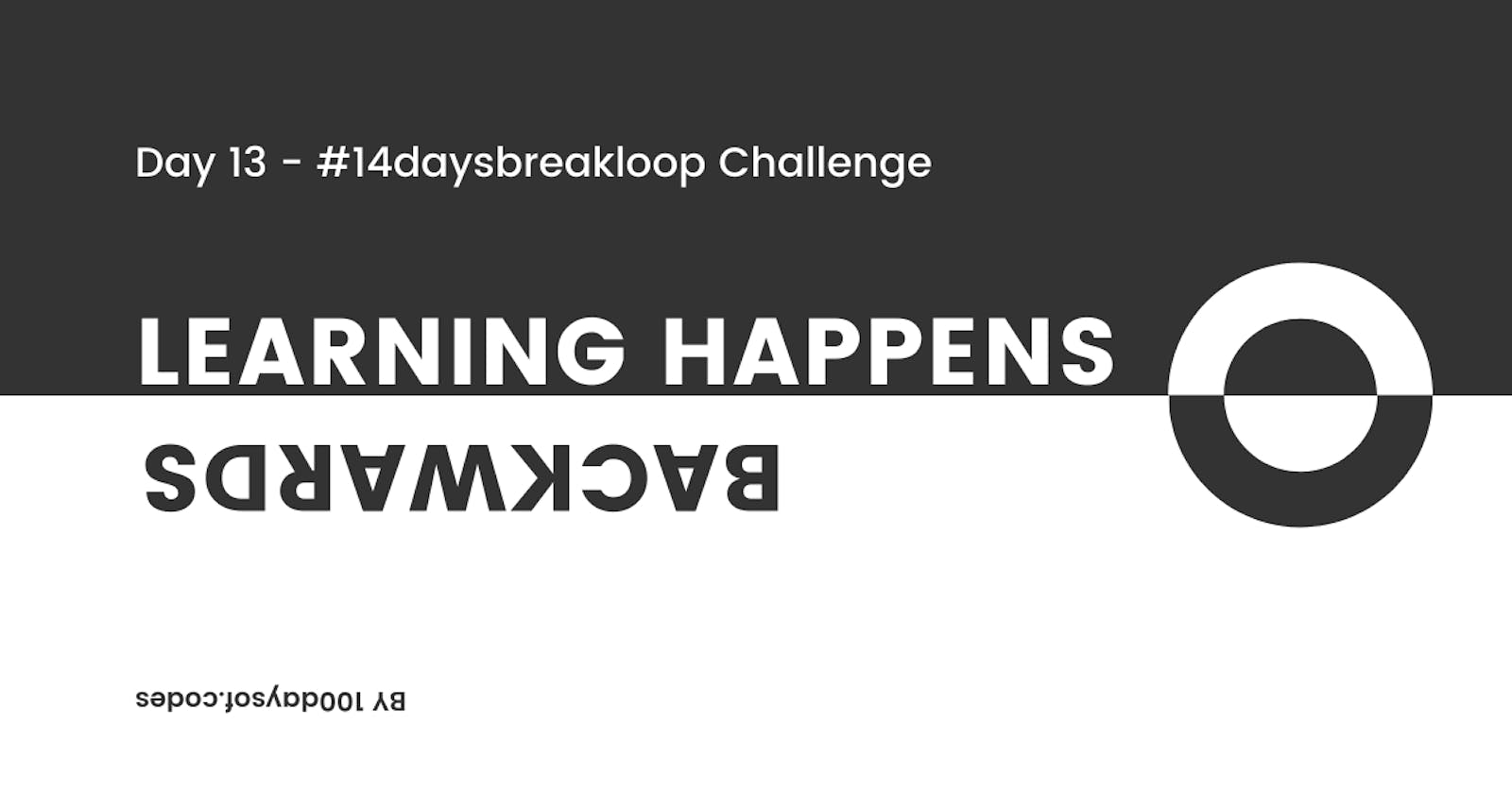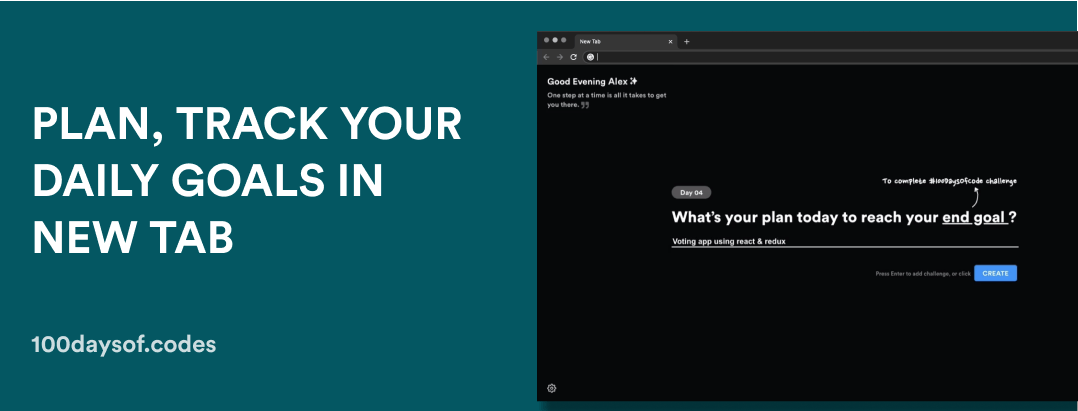Learning we do mostly is consumption of information. To make it as a knowledge we need to learn how to acquire it backwards - through our times of success & failures. Something I loved while I was watching Tenet is the idea of the temporal pincer movement - One group moved forward in time and the other moves backward in time, each side using the knowledge gained from the other side.
It came to my realization point if I haven't stubborn about starting a startup while in college, spending much time exploring that, doing nothing and failed. When I indeed start building one for the past two years and have to quit for the undeniable circumstance, Rams and I wouldn't have started 100daysof.codes.
Every moment of failure and success that happens in the past is the chance I have to learn and move forward. Yes, learning happens only backward. But we have to push ourselves consistently forward and make an action. So how fast and efficient we learn from our actions is how better we build our feedback loop.
Do an action, measure, learn and repeat.
Building a feedback loop
Building feedback loops are essential to optimize our learning cycle. Feedback loops build on three steps.
- Measure - Track what we do. This improves accountability and awareness of tracking things around us.
- Compare - Comparison between the measurement of where you are now to where you want to be.
- Adjust - Adjust is the action we do to close this loop. Bridge the learning from previous cycle and open the next cycle of learning.
It arrives us to the recap of our learnings in past days. Every objective we work on, the task we enter in our new tab extension was to begin this loop. Every note we took daily, small wins, failures are what starts building this forward loop. Without them, we couldn't measure the path we traveled. We don't know what we lack to reach our destination. Keep the loop short and learn as fast as you can to speed up your path to success.
Keeping ourselves accountable to our mistakes
Keeping an accountability partner pushes us to learn faster and avoid procrastination. I would like to share an incident read recently, YC founders used to have Tuesday night dinners where startup founders would discuss their progress past week. This forces the founders to innovate constantly every week as they need to present their work public to other founders.
If the environment isn't pushing you to learn more, create the environment.
Action items
- Most important thing is to keep tracking what we do. List down what you have learned so far - It might be skills, shortcomings, best moments, every thing that helps you to take action next.
- Staying accountable to the actions is key to learning & prevent making mistakes regularly. Choose a accountability partner - might be a friend or committing public to twitter.
Thought for the day

This article is written by Karthikeyan and co-authored by Rams
This article was written as part of day 13 of the #14daysbreakloop challenge. Get the new tab extension from Chrome Web Store and start working on your #100daysofcode.


